CD: Norah Jones - Begin Again

A rag tag set of recordings only serves to show Jones's musical maturity
There's a remarkable lightness to the way Norah Jones has glid through her career.

There's a remarkable lightness to the way Norah Jones has glid through her career.
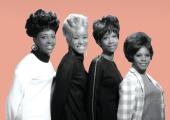
The US music trade weekly Cashbox chose a picture of the then-hot Diana Ross & the Supremes and Temptations joint enterprise for the cover of its 14 December 1968 issue. On page 28, under the header “Best Bets”, a review of the “It’s the Loving Season” single by The Vareeations (pictured above) said “Standout female lead makes an especially fine showing on this blues-pop ballad side.

In the summer of 2014, there was little getting away from Hozier's "Take Me to Church". Whenever you turned on the TV or the radio there it was. It wasn't just in this country. Eventually, the song became number one in 12 countries and number 2 in the States. Of course, for the singer, this massive success also brought a big problem: how to top it? When Hozier sat down to write his new album he must have agonised about what he'd got so right first time around.
On paper, the recipe was simply a blend of soul, gospel, folk, and rock. The clever bit was how the ingredients were mixed. Hozier's music appealed both to sensitive indie rockers and those who prefer a more muscular style. That's what set it apart. theartsdesk's reviewer - a self-confessed loather of vulnerable male singer-songwriters - even opined that Andrew Hozier-Byrne had much more in common with Robert Plant than the likes of David Gray or Jack Johnson.
This time around Hozier still mixes soul with rock and folk. But now, the proportions have changed.
Three belting soul-rock numbers open proceedings. Guest appearances by Mavis Staples and Booker T give opener, "Nina Cried Power", a rich, meaty sound. Personally, I prefer the more nuanced tone on "Almost (Sweet Music)". The guitar is light, the verse is beautifully mumbled and the whole lot just sways. It almost reminds you of Van Morrison.
It also sets things up nicely for the album's two pop-rock numbers. One works well, the other less so. "Nobody" adds a pinch of hip hop to create a possible summer hit. Unfortunately, "To Noise Making (Sing)" takes the catchy vibe too far, veering perilously close to George Ezra territory.
Finally, we come to the brooding folk-rockers. The best of these are really quite pretty. "As it was" contains hints of early John Martyn, and the album's closer, "Wasteland Baby!" harks straight back to acoustic Zeppelin. Disappointingly, though, the quality, again, isn't even. "Sunlight" seems to never end and "Dinner and Diatribes" is just too scratchy.
You can't help noticing too, that these are two of the album's most gloomy-sounding songs. As Hozier knows well, being musically downbeat works better when there's a little contrast. Wasteland Baby!'s finer moments - and there are many - come where he balances his natural despondency with some positivity.
Overleaf: the lyric video to "Wasteland Baby!"
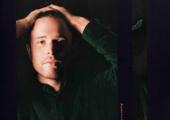
There is an inevitable change that comes with moving from the realms of self-produced bedroom blubstep to slickly-produced West Cali smoothness that will cause chaotic realms of loss of self, fans and at some level, originality. But let’s not forget – this is surely what Blake has always been aiming for.

Without the necessary distance, characterising last year through its pop music is a mug’s game. A gulf of 50 years would bring some perspective. Nonetheless, in spite of that interval there are difficulties in creating a fitting soundtrack to 1968 – especially when using its singles as the emblematic markers.
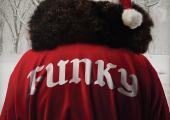
Egbert Nathaniel Dawkins III – Aloe Blacc – is one shrewd dude. He's extremely adept at reaching out beyond the confines of his natural beat of funk and soul, whether that's credible (covering The Velvet Underground's “Femme Fatale”) on his breakthrough 2010 Good Thingsalbum or commercial (co-writing and singing the late Swedish EDM gigastar Aviicii's “Wake Me Up” can't have done his bank balance any harm, what with going to number one in 22 countries). And of course nobody ever went bankrupt releasing a Christmas album...

Rob Smith & Ray Mighty are truly the unsung heroes of British bass music. Coming out of the same cultural melting pot in Bristol that gave us Massive Attack, Tricky, Portishead and mega-producer Nellee Hooper, they looked to be among the city's big successes when they first emerged in 1987.
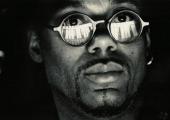

Disc of the Day reviews new albums, week in, week out, all year. Below are the albums to which our writers awarded five stars. Click on any one of them to find out why.
Baxter Dury, Etienne de Crécy and Delilah Holliday - B.E.D. ★★★★★ A small but perfectly sleazy work of sweary, cynical brilliance
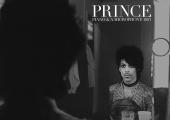
Knowing a deceased artist's archives are available for re-release is a double-edged sword. Will there be a shoddy flood of any and every old bit of tat a la Jimi Hendrix? Will there be half-arsed, half-finished and even fake songs bodged together by trashy but popular modern dance remixers like Michael Jackson? Will the vaults just stay infuriatingly locked? With the impossibly prolific, but often self-indulgent Prince, it is doubly worrying: who has the rights? What will the quality control filter be like?